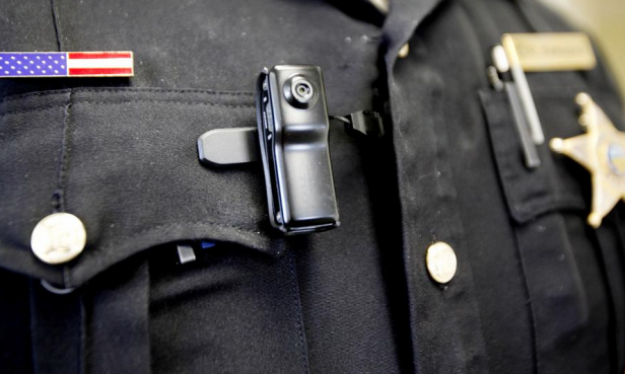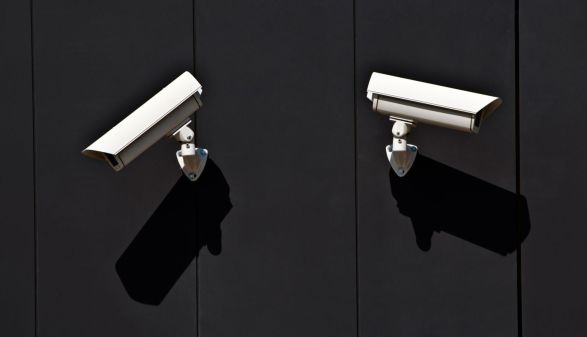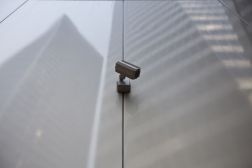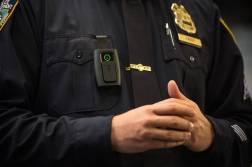Police endanger civil rights with body camera policies, report says

A civil rights group is handing out some scathing reviews for the way some of the nation’s largest police departments use body-worn cameras.
In a “scorecard” released Monday by the Leadership Conference on Civil and Human Rights, Atlanta and Ferguson, Missouri, earned negative ratings across all eight categories the group reviewed. Phoenix; Miami; Milwaukee; and Memphis, Tennessee, also earned poor marks in a majority of the areas studied.
The report, compiled with the help of the technology consulting firm Upturn, examines the policies put in place by the 15 largest departments in the country that are in the process of adopting body cameras, and also highlights 10 other departments with practices the group deemed innovative or worthy of scrutiny.
“Cameras are just a tool, not a substitute for broader reforms of policing practices,” said Wade Henderson, president and CEO of the conference. “Without carefully crafted policy safeguards, there is a real risk that these devices could become contributory instruments of injustice, rather than tools for accountability.”
The group awarded a green, yellow or red rating based on whether each department: makes its policy publicly and readily available, limits officer discretion on when to record, addresses personal privacy concerns, prohibits officer pre-report viewing, limits the retention of footage, protects footage against tampering and misuse, makes footage available to individuals filing complaints and limits the use of biometric technologies.
Of the cities examined, Las Vegas received four green ratings, while Chicago; Houston; San Francisco; Cleveland; and Oakland, California, each managed three. Yet all of those departments were trumped by Parker, Colorado, a town the group chose to highlight, that managed to earn four green ratings, three yellows and just one red.
The only cities to earn uniformly negative results were Atlanta and Ferguson, a city the group chose to examine in the wake of the controversy following the shooting of Michael Brown last year.
“For both of those departments, their policies were extremely brief and probably the least thought out of all the policies we’ve reviewed,” said Harlan Yu, a principal at Upturn.
Yu noted that most of the departments he studied displayed deficiencies in several key categories.
For example, the group found that most departments failed to explicitly prohibit their officers from viewing body camera footage of an incident before writing a report about it. Yu noted the departments could be giving officers an “undue advantage” over other witnesses to a controversial incident by not limiting this practice.
“By allowing pre-report viewing, statements from officers will always appear more accurate and more credible than other witnesses statements, which would unnecessarily tilt the justice system even further against criminal defendants,” Yu said. “It’s unlikely that any prosecutor or investigator would ever afford other witnesses the ability to watch footage of an incident before giving an untainted statement. It should be no different for officers.”
Yu added that many departments scored poorly when it came to how they let the public access the footage. In all, the group found that only Washington, D.C., and Parker have policies that let people who want to file a complaint about officer misconduct to view any relevant footage.
“Nearly all the other departments rely simply on their state and public records law, but this may not be enough,” Yu said. “In California, for example, all footage is considered public records, but California’s public records act provides a broad investigatory exemption, which effectively means that no California body camera footage is ever required to be made available to anyone outside the department.”
In addition, Yu noted that only Baltimore set limits on the use of biometric technology — such as face or voice recognition software — and was the only department to even mention the subject in its policy.
“Cameras should be tools of accountability for police encounters, not face or body scanners for everyone who walks by on the street,” said Sakira Cook, policy counsel for the conference. “If those technologies are used together with body cameras, it actually intensifies the stark disparities in surveillance in more heavily policed communities of color.”
While these results might seem discouraging for civil rights advocates, Henderson stressed that the scorecard was merely meant to “encourage reform, not give a condemnation.” Indeed, Yu thinks that the departments can use the report as a jumping off point going forward.
“We hope that they use our scorecard to look toward their peers and find model language to get each of their policies up to green,” Yu said. “Every department that we scored has improvements to make.”
Contact the reporter who wrote this story at alex.koma@statescoop.com, or follow him on Twitter at @AlexKomaSNG.





